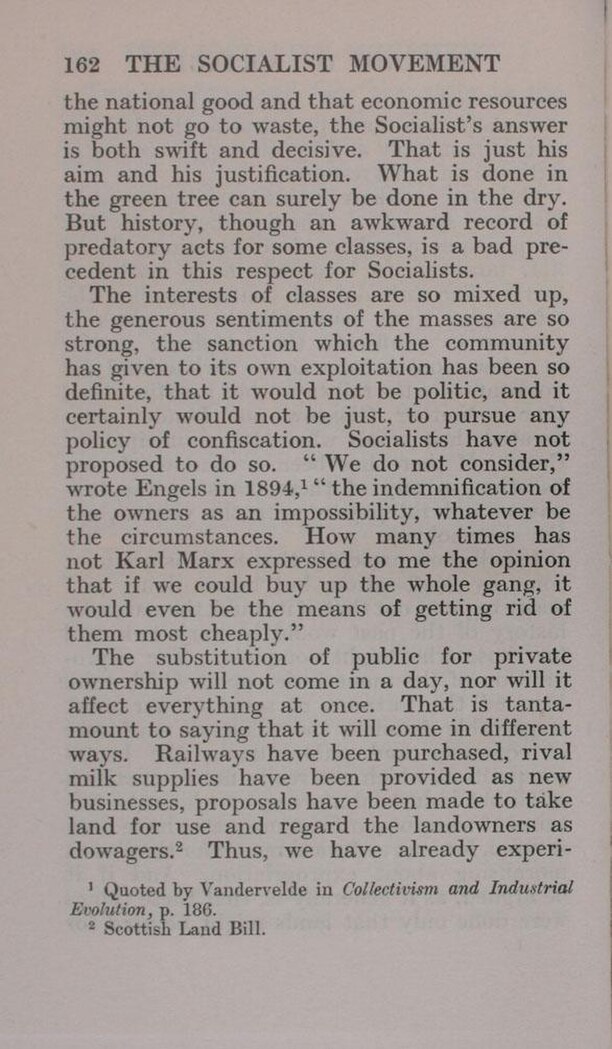the national good and that economic resources might not go to waste, the Socialist's answer is both swift and decisive. That is just his aim and his justification. What is done in the green tree can surely be done in the dry. But history, though an awkward record of predatory acts for some classes, is a bad precedent in this respect for Socialists.
The interests of classes are so mixed up, the generous sentiments of the masses are so strong, the sanction which the community has given to its own exploitation has been so definite, that it would not be politic, and it certainly would not be just, to pursue any policy of confiscation. Socialists have not proposed to do so. "We do not consider," wrote Engels in 1894,[1] "the indemnification of the owners as an impossibility, whatever be the circumstances. How many times has not Karl Marx expressed to me the opinion that if we could buy up the whole gang, it would even be the means of getting rid of them most cheaply."
The substitution of public for private ownership will not come in a day, nor will it affect everything at once. That is tantamount to saying that it will come in different ways. Railways have been purchased, rival milk supplies have been provided as new businesses, proposals have been made to take land for use and regard the landowners as dowagers.[2] Thus, we have already experi-
